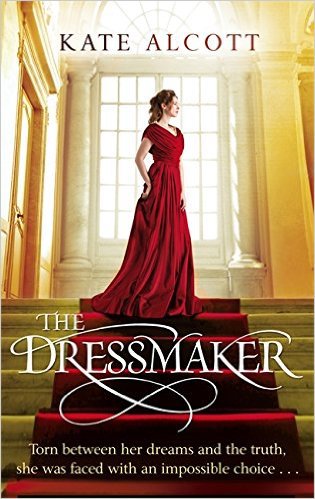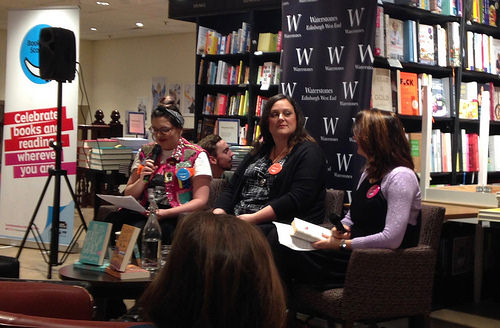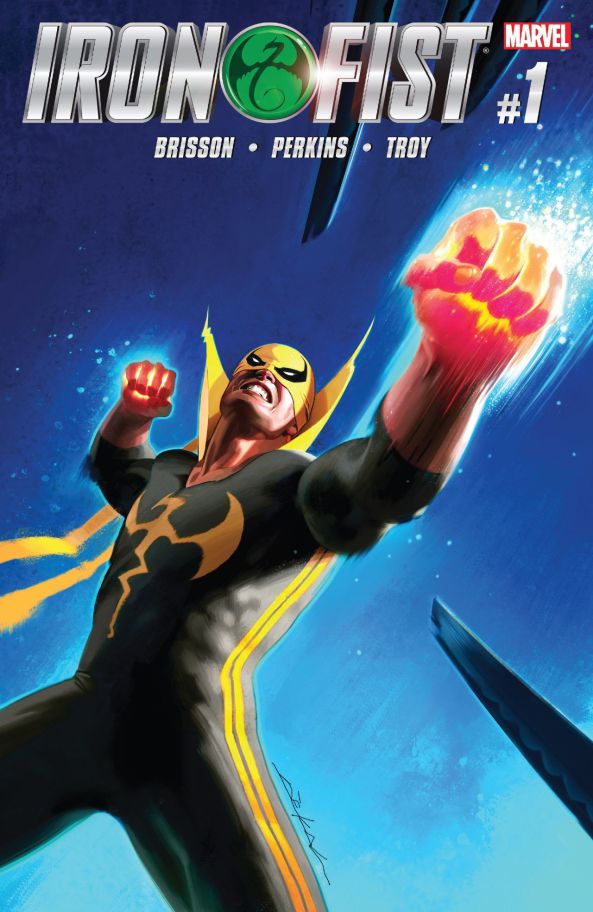
Plot: Just in time for the centennial anniversary of the sinking of the Titanic comes a vivid, romantic, and relentlessly compelling historical novel about a spirited young woman who survives the disaster only to find herself embroiled in the media frenzy left in the wake of the tragedy.
Tess, an aspiring seamstress, thinks she’s had an incredibly lucky break when she is hired by famous designer Lady Lucile Duff Gordon to be a personal maid on the Titanic’s doomed voyage. Once on board, Tess catches the eye of two men, one a roughly-hewn but kind sailor and the other an enigmatic Chicago millionaire. But on the fourth night, disaster strikes.
Amidst the chaos and desperate urging of two very different suitors, Tess is one of the last people allowed on a lifeboat. Tess’s sailor also manages to survive unharmed, witness to Lady Duff Gordon’s questionable actions during the tragedy. Others—including the gallant Midwestern tycoon—are not so lucky.
On dry land, rumors about the survivors begin to circulate, and Lady Duff Gordon quickly becomes the subject of media scorn and later, the hearings on the Titanic. Set against a historical tragedy but told from a completely fresh angle, The Dressmaker is an atmospheric delight filled with all the period’s glitz and glamour, all the raw feelings of a national tragedy and all the contradictory emotions of young love
Rating: 7.5/10
The Dressmaker focuses on the following issues: The sinking of the Titanic and the grand ineptitude that lead to it and the disaster that unfollowed; the true nature of the human beings on board that couldn’t help but be exposed while faced with such horrific events, the aftermath of the sinking of the ship, the suffragette movement (briefly); the class system that was so debilitating to the lower class and a love triangle for the main heroine.
Is it too much to address in one book? I didn’t think so. I had a great deal of fun with this book. It’s well written and the main character is endearing. I liked Tess enormously – she was determined to be something and work hard for it. She didn’t expect any favors, she just wanted a chance. Lucille and Cosmo were the most disgusting examples of privilege in this book – even though Lucille seemed to have some redeeming qualities a few times, she was haughty, overly privileged and cruel. Cosmo seemed like the lesser evil, but obviously he was just as pompous and power hungry as his spouse. I also really liked Jim Bonney – he was pure and honest and hardworking. Jack Bremerton was an interesting character, one who I thought would turn out devious but never really transformed into anything like that.
What I really liked was an insight to how people dealt with being in full survival mode on top of an “unsinkable” ship. I’ve always wondered, and assuming that everyone would act like Jack Dawson / Rose is naïve – fear makes people reveal their true core nature. Most people acted cowardly, and I’m not really sure we are allowed to blame them, not having been in that situation and witnessing what they have witnessed.
I also really loved the character development of Tess Collins – her character sets out as this naïve and determined girl who somehow still believes that the upper class will end up treating her well because she has some talent. Everything that held her stable is destroyed with the witnessing of the Titanic disaster, the following aftermath and the less reputable actions of her Madame both onboard and on mainland.
The end of the book concluded nicely, with Tess realizing what was important and making decisive moves that meant she could live with her choices. I might also add for those worried that there really isn’t any melodrama involved, both with the love triangle or any other part of the story. It is simply a nice read that asks important questions in an unimposing way, and I stupendously glad I read this novel.
Advertisements Share this:- More





